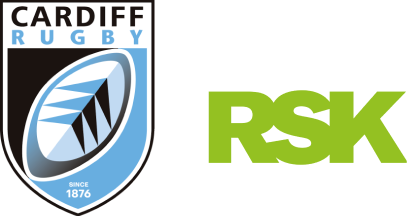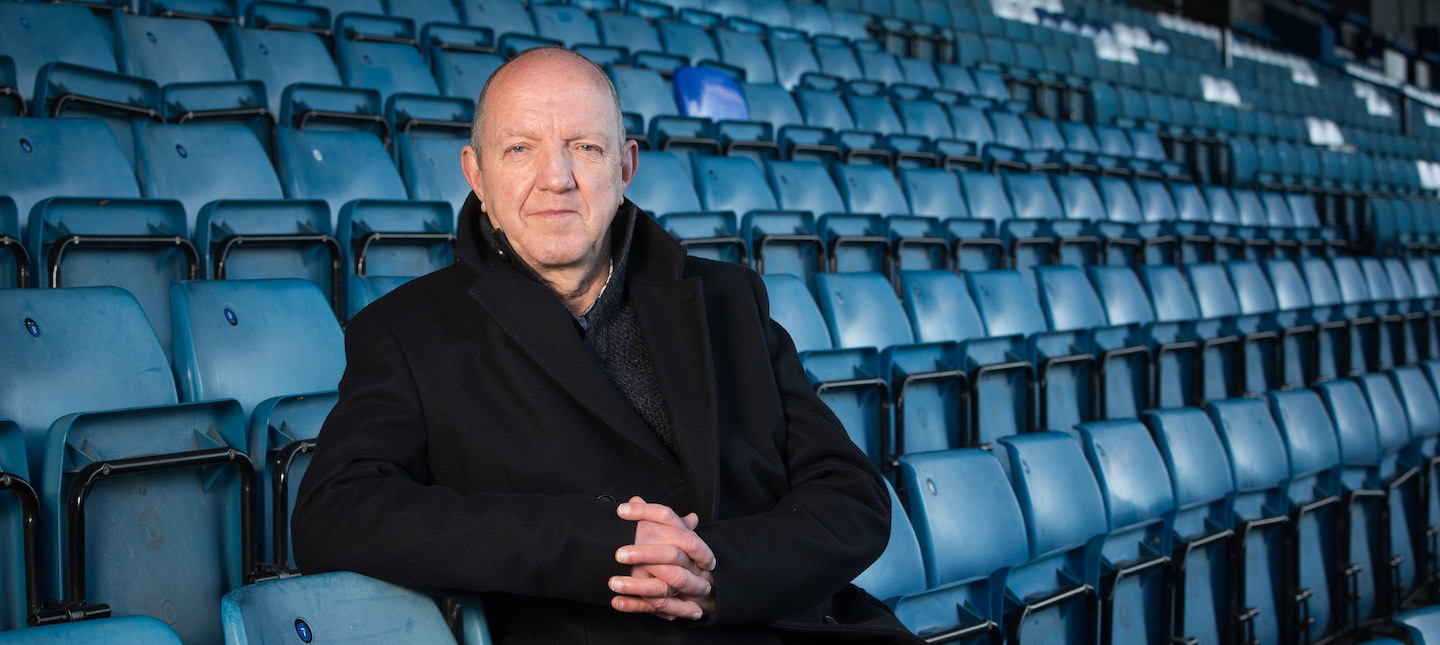Last year we announced our intention to appoint a Supporter Advisor to the Cardiff Rugby board. While an election was not possible, the club followed the process and David Allen was appointed after being interviewed by Cardiff Rugby chair, Alun Jones, and CEO, Richard Holland.
Here, we catch up with David Allen to hear about his long-held love of the Blue and Blacks, his hopes for the role and immediate priorities.
Q: Congratulations on your appointment as an advisor to the board, how excited are about the position?
DA: It’s really exciting and it has been a long time in the making. CF10 Trust have been lobbying for something like this since its inception, so for five or six years, and it’s really encouraging that the club have taken the decision to move the idea forward. That is tremendous and the club deserve a lot of credit for doing so. But it is also quite daunting in that it’s going to be a big challenge to carry out the role effectively and to make the impact we all hope for.
Q: While the formal process was followed, you were the only applicant and therefore there was no election. How disappointing was that?
DA: It was disappointing but perhaps not that surprising at this point. This is a brand-new initiative, the person specification was pretty tight, and the role will be a demanding one. Everyone at the club wanted to have a formal election process, but the situation is as it is. One of my aims over the next three years will be to get the role fully established and understood so that the next time it comes around there is a strong field of candidates to choose from. It’s something of a pilot at the moment, so we need to prove it works and works well.
Q: What are your hopes for the role?
DA: There are many. In any professional sports club, there is inevitably a gap between the people that pay their money to stand on the terraces or sit in the stands and those that actually run the club and make the decisions. One of the hopes is to reduce that gap. Very often there is a feeling of “them” and “us” so one of the aims is to make it feel like it is just “us”.
I also hope the post makes a difference to the way the board operates. The club deserves a lot of credit because things have improved hugely in recent years in terms of communication and dialogue with supporters, but as a supporter you have to ultimately just hope that the feedback filters through to the board. The difference now is that we have someone sat on that board and so can guarantee that this will happen. Experience from elsewhere also suggests that this enhances the decision-making process at board level so that it is more fan-centric.
I also hope that this development allows us to better utilise one of our greatest assets, which of course is our supporters. They are an incredibly passionate, committed and diverse group of people who have an enormous set of skills, which I think we can capitalise on more than we do at present.
Q: Taking us back to the beginning, what is your background and when did you first start supporting Cardiff?
DA: I’m a Swansea Jack by birth but moved to Barry as a young boy and my first game was in 1971. I became a member when I was at school and the then captain Gary Davies, who was a family friend, proposed me and I was seconded by the great club legend Alun Priday, who was then secretary and now life president of CAC.
I went to Cardiff University and have lived in Cardiff ever since. My entire career has been spent in the NHS as a clinical and academic psychologist working with people with learning disabilities and specifically with those who display major behavioural difficulties. Though I’ve always been based in South Wales, I’m very fortunate in that my career also allowed me to work at both national and international levels and I’ve had the privilege of travelling to many different countries in the course of my job. I’ve just retired for the third time and really hope to get it right this time!
So, I’ve have been a season ticket holder, some 50 years now and have many happy memories. The games that stand out are against touring sides, Welsh Cup games and more recently the EDF and European finals – the same games most supporters would pick out I guess. But the club is also about passion, commitment, and friendship. It’s always been a great place to be in terms of meeting people and knowing people and it just feels like a really important piece of the city.
Somewhat by accident, about six years ago I ended up chairing the group that was to become CF10 and was then chair of the trust for five years, which helped me understand the wider issues of supporter involvement and what we can contribute. I have also been on the Cardiff RFC committee for a brief period and remain a member of the Cardiff Athletic Club Heritage committee. I suppose I have gone from being a regular supporter over a long period of time and through thick and thin, to somebody who sees things in a slightly different way and believes supporters have a really important role to play in the future of Cardiff Rugby. Ultimately the aim must be to help the club regain its position in British and European rugby.
Q: How will you communicate with those existing supporter groups?
DA It is crucial that I have a good line of communication with all our supporter groups. It is a slightly unusual position here in that we are talking about groups plural rather than singular, but the first board meeting I will attend is later this month and I plan to meet each of the current groups in advance of that. I want all the groups to have an opportunity to help shape how this will work. Ultimately, how well these groups function will determine the impact that the supporter advisor has and it’s important that people really get behind and use them effectively. Having said that, I want to be accessible to all and anyone should feel free to contact me direct if they have suggestions or issues they want raised (and can do so via: David.Allen@cardiffrugbywales)
Q: This is just the latest step in the strengthening and modernisation of the club’s governance, how pleasing has that been?
DA: The club deserve huge recognition for the work they have done in this area, it has changed enormously in the last few years. In the past many clubs have essentially been run by people who could afford to buy a large stake and all credit to them for doing that as many clubs would not have survived had they not done. In more recent times, there has been a shift towards the development of more ‘skills based’ appointments to further strengthen boards in many clubs, and Cardiff Rugby has now done just that. We’ve seen some really big hitters join us in the last few years who bring tremendous experience to our business. However, one of the skills required at board level in an effective sports club is being able to represent supporter views and Cardiff has now embraced that idea. Every current board member is also a supporter, but this development is different in that we now have a board member put forward by supporters themselves (I was the nominee of the CF10 Board) and specifically responsible for supporter liaison and engagement. It’s a real change in dynamic and another really positive step in the wider evolution of the governance of the club.
Q: How excited are you about the direction the club are heading both on and off the pitch.
DA: On the one hand it is an extremely difficult time due to the pandemic and the financial challenges that have followed, the position of the regional game in relation to the national team, and the continued uncertainty around the Arms Park. These are all huge challenges and tensions, but alongside these concerns, there are also so many reasons for optimism and excitement.
The kind of spirit we showed in those European games against Toulouse and Harlequins was absolutely phenomenal. It shows the work that is going into the pathway, that the future is very strong and that if we get it right, the passion is there and the support is there. The Toulouse game was the best atmosphere at the Arms Park in a very long time and demonstrates the latent support in the city and wider region. On top of that, we’ve now made some great, experienced signings who will have a massive influence on our younger players going forward.
We have struggled in recent times to realise our potential and while it remains a very difficult time from a financial perspective, there are lots of positive developments and a real reconnection with the city and the supporter base. The rebrand was an essential part of that. It was a long time coming and still needs to be capitalised upon but, both on and off the pitch, there is a lot to be enthused about.

